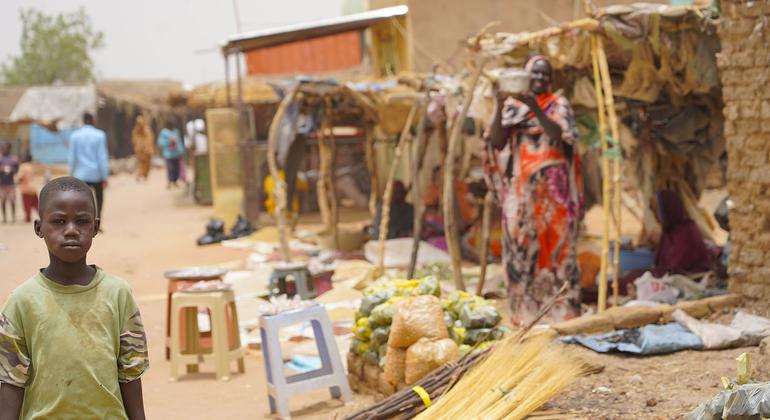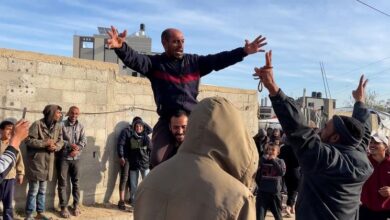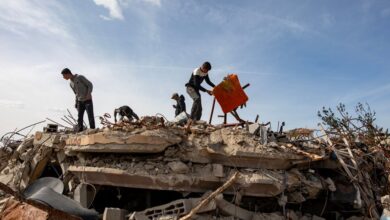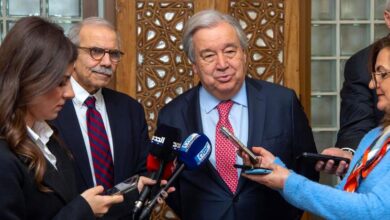Sudan: UN calls for immediate action to end fighting in El Fasher

Both the Sudan Armed Forces (SAF) and the paramilitary Rapid Support Forces (RSF), along with their allied militias, continue to ignore international humanitarian and human rights law, Martha Pobee, Assistant Secretary-General for Africa at the United Nations Department of Political and Peacebuilding Affairs (DPPA), said in a statement. Security Council.
“Violations include summary executions, kidnappings and enforced disappearances.“The arbitrary detention and incommunicado detention of civilians by both sides has exposed many to torture and other human rights violations,” she said.
She also expressed deep concern about shrinking public spaces, ethnically motivated attacks and hate speech, as well as the use of sexual violence as a weapon of war, and called for immediate action to end the fighting.
“A dangerous new reality has now emerged following the El Fasher escalation with serious and unpredictable consequences.“This risks intensifying and exacerbating the conflict, causing deeper ethnic polarization in Sudanese society and further destabilizing the region,” she warned.

Martha Pobee, Assistant Secretary-General for Africa, is briefing the Security Council on the situation in Sudan.
Situation in El Fasher
El Fasher, the capital of North Darfur and a city of nearly one million people, has become the focus of Conflict in SudanDespite repeated calls from the Security Council to stop fighting, heavy shelling and air strikes continue, devastating hospitals and civilian infrastructure.
The humanitarian situation there is deteriorating, with more than 700,000 internally displaced people in immediate danger. Civilians, especially women and children, face serious threats amid worsening access to health care and widespread food insecurity affecting 1.7 million people in the region.
Famine has been declared in Zamzam camp.a place of about half a million people, on the outskirts of El Fasher, and Thirteen other localities have been identified as being at risk of famine. in North Darfur.
It’s just getting worse
In the briefing, Joyce Msuya, Acting Under-Secretary-General for Humanitarian Affairs, recalled that in February, the charity Doctors Without Borders (MSF) reported that a child died every two hours in Zamzam refugee camp.
“The latest screening by MSF and the Ministry of Health from 1 to 5 September showed that The situation is only getting worse.,” she said, noting that about 34 percent of children are malnourished, including 10 percent who are severely malnourished.
“The situation is being exacerbated by almost insurmountable obstacles to the delivery of humanitarian aid. Since May, roads into Zamzam and El Fasher have been inaccessible due to fighting around the city, and more recently due to damage caused by heavy rains and flooding,” she added.

Joyce Msuya, Acting Under-Secretary-General for Humanitarian Affairs, briefed the Security Council on the situation in Sudan.
We do not give up
Despite the harsh conditions, humanitarian efforts continue.
“We are not giving up yet”, Msuya said, expressing hope that as the floodwaters recede, supplies can finally reach El Fasher and other areas at risk of famine.
However, she stressed that de-escalation of fighting remained important.
“Without safe, predictable access and steady supplies of food and humanitarian aid, we will see a spike in mortality. – including children – in Zamzam and other areas around El Fasher,” she warned.
United Nations efforts continue
In parallel with humanitarian efforts, the United Nations has been actively engaged on the political front to end violence and protect civilians across Sudan.
“The UN Secretary-General’s personal envoy to Sudan, Ramtane Lamamra, has been directly engaging with the warring parties,” Ms. Pobee said, adding that this included participating in the Geneva talks in July and supporting the mediation efforts led by the United States, Saudi Arabia and Switzerland in August, in addition to a visit to Port Sudan with the UN Deputy Secretary-General to advance these efforts.
In addition, Security Council Resolution 2736 (2024) calls for further recommendations on the protection of civilians, which are currently being drafted and will be presented in October.
Ms. Pobee stressed that while the Government of Sudan bears primary responsibility for protecting civilians, “All parties to a conflict have a responsibility to respect and fulfil their obligations under international human rights and humanitarian law.“ .
She pointed out that during the Geneva talks, RSF submitted unilateral commitments to the Secretary-General to strengthen the protection of civilians, stressing that “RSF must implement its commitments and take steps to implement them without delay.”
“A ceasefire would be the most effective way to enhance the protection of civilians. This is true for El Fasher and the whole of Sudan.”




